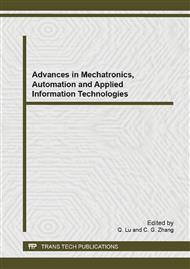p.1844
p.1848
p.1852
p.1856
p.1860
p.1864
p.1868
p.1873
p.1877
Research on Network Voting System Based on Conditional Entropy and Point-Including Protocol
Abstract:
In the high speed development today, the use of the Internet has penetrated into all areas of life, with the increase of the number of internet users, much of word can be started on the internet. Takes a great deal of field in the process of large-scale ballot, is very complicated for the organization of elections. It is very complicated for the organization to occupy a large-scale land for a big election. But this will be convenient on the internet, so it can be applied to the big election. Based on the point includes protocol, this paper established the mathematical model of anonymous conditional entropy. Finally designing a electronic voting system based on the realization process of political democracy, which also test the anonymity of the system, and providing a theory reference for the democratic process on the network.
Info:
Periodical:
Pages:
1860-1863
Citation:
Online since:
November 2013
Authors:
Price:
Сopyright:
© 2014 Trans Tech Publications Ltd. All Rights Reserved
Share:
Citation:


